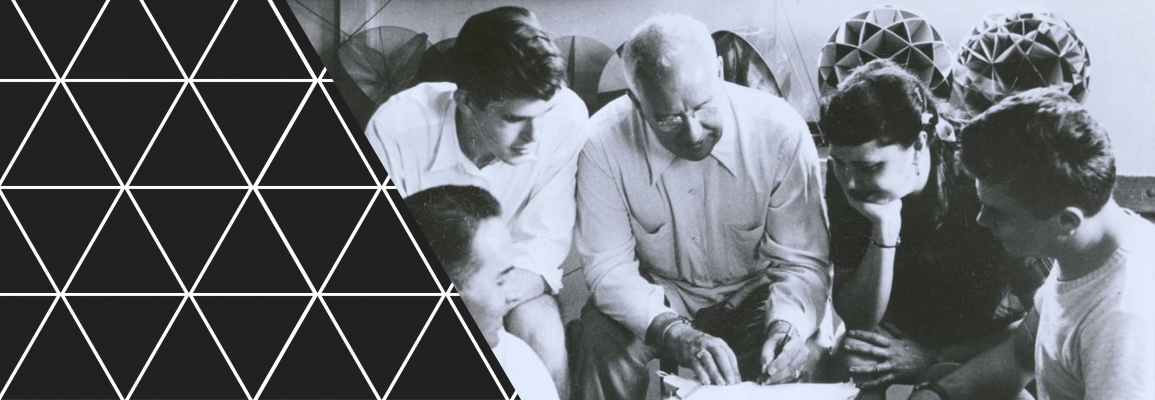Black Mountain College Era 5: After 1957
Black Mountain College closed its doors in 1957 under the oversight of Charles Olson. Among the American public and academic community, at the time, as well as Buncombe County locals, there was a general lack of interest in Black Mountain. The College had no endowment and, in the end, it was unable to recruit enough students for it to remain solvent, and certainly the arch-conservative climate of the 1950s, inspired by McCarthyism, was another stake through its heart.
When the school closed, Charles Olson and the remaining students reluctantly helped pack classrooms and remove traces from campus grounds after Camp Rockmont president George Pickering purchased the upper and lower tracts of the Lake Eden campus. It took nearly five years before the school was able to close final accounts, comprising nearly three decades of daring experimentation in liberal education. Today, the campus is used for youth camp programming, but visitors are welcome to check in at the gatehouse and receive permission to view the fields where students used to practice photography using dancers as models against a backdrop of the Blue Ridge Mountains.
Yet to this day, Black Mountain College remains one of the greatest experimental academic adventure ever launched on American soil. During its history, many of the nation's greatest thinkers and artists were in residence or paid visits to Black Mountain: Anni Albers, Josef Albers, Hazel Larsen Archer, Ruth Asawa, Eric Bentley, John Cage, Harry Callahan, Jean Charlot, Robert Creeley, Merce Cunningham, Edward Dahlberg, Fielding Dawson, Robert DeNiro, Sr., John Dewey, Robert Duncan, Albert Einstein, Aldous Huxley, Alfred Kazin, Galway Kinnell, Willem de Kooning, Buckminster Fuller, Paul Goodman, Walter Gropius, Langston Hughes, Zora Neale Hurston, Karen Karnes, Franz Kline, Irwin Kremen, Jacob Lawrence, Henry Miller, Robert Motherwell, Charles Olson, Arthur Penn, Francine du Plessix-Gray, M. C. Richards, Robert Rauschenburg, Nathan Rosen, Ben Shahn, Aaron Siskind, Cy Twombly, Jack Tworkov, Stan VanDerbeek, Thornton Wilder, Jonathan Williams and countless others. Black Mountain produced innovators in Education, Science, Social Work, Architecture, Urban Planning, Psychiatry, History, Politics, on and on. To research a Black Mountain College alumnus is to stumble upon greatness, but not merely in typically quantifiable ways. They became citizens of blazing social consciousness and engagement who put to daily practice what John Andrew Rice imagined for his new college's students back in 1933: inner freedom in judgment and action.
Black Mountain College started with pure intellectual curiosity and radical curricular reform, most notably an arts-centered education and a clear focus on the classic master-apprentice paradigm. Its faculty and students not only questioned artistic and educational boundaries, but also rethought issues as varied as race, immigration, community, and sustainability by living and learning in a shared creative space. These legacies continue to resonate even after the closing of its doors. As Charles Olson proclaimed in a letter to Martin Duberman: "'There's no end to the story – her flag flies.'"
